Located in the cosmopolitan port city of Tianjin, Nankai University of Tianjin is a university of academic quality and historical prestige. In 1919, it was founded by visionary thinkers Yan Xiu and Zhang Boling as a light house of creativity, patriotism, and rigorous scholarship. Given that China’s first Premier’s alma mater, Nankai, sits upon a tradition of a culture of public service and intellectual activity, one that continues to shape generations of leaders and intellectuals, the path to Nankai University of China admission requirements for international students is set and competitive, combining academic brilliance with an openness to cultural interaction. Whether you are drawn to affordable China Nankai University fees or the chance to study in one of China’s top research universities, Nankai offers it all. Here in this complete guide by admission institute, we’re going to discuss it all from program options to budgeting your finances, directly from the university’s own sources.
Nankai University at a Glance
| Category | Details |
| Popular Majors | Chinese Language, Economics, Computer Science, Clinical Medicine, Chemistry, Mathematics, International Relation, Clinical Medicine |
| Tuition Fees (Annual, RMB) | Undergrad: 20.000-25.000RMB ($2.800-$3.500), graduates: 25.000-50.000 RMB ($3.500-$70.00) |
| Living Costs (Monthly, RMB) | 15.00-3.000 ($210-$420) for food, transport and entertainment |
| Admission Requirements | Highschool Diploma (undergrads), IELTS 6.0+/ TOEFL80+/ HSK4-6, transcripts, recommendation letter, Personal statement, Physical Exam |
| World Rankings (2026) | QS: #355 THE: #401-500 ARWU: #201-300 |
| Scholarships | Chinese Governments scholarship (Full Coverage), Tianjin Government Scholarship, Nankai University Scholarships (60-100% coverage) |
Updated 10/30/2025
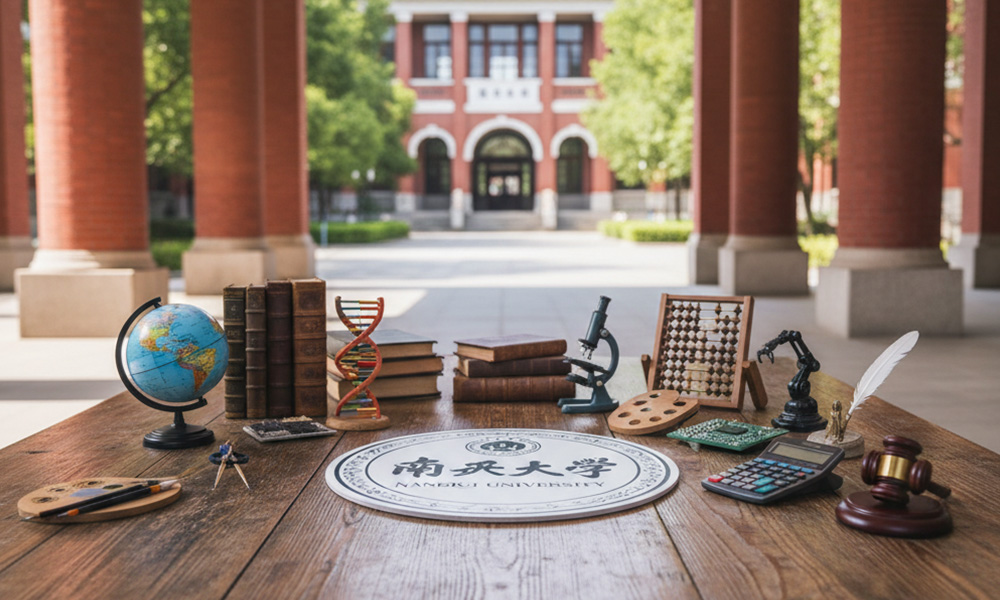
Nankai University Majors
Tianjin Nankai University offers a broad span of disciplines, so varied and diverse in interest area and professional goals.
1. Undergraduate
There are 92 undergraduate majors distributed in 26 colleges and schools at the undergraduate level. There are 58 humanities and social science majors, such as philosophy, history, Chinese language and literature, foreign languages, economics, finance, international trade, law, journalism, and public administration. There are the remaining 34 in sciences, engineering, and medicine, such as mathematics, physics, chemistry, biology, computer science, artificial intelligence, electronic information engineering, automation, environmental science, biotechnology, and clinical medicine.
The College of Chemistry, for instance, has programs in applied chemistry and materials chemistry with the backing of the State Key Laboratory of Elemento-Organic Chemistry. Mathematics programs concentrate on pure and applied streams to provide space for research in algebra and topology. Business students have an option from the Business School courses in accounting, marketing, human resource management, and e-commerce. The Zhou Enlai School of Government has specialized undergraduate majors in political science and sociology, combining public policy with real government practice.
2. Graduate
Nankai is exceptional for its graduate offerings with 231 master’s programs, 172 doctoral programs, and 31 professional degree programs in all 13 areas of academic studies recognized in China, including philosophy, economics, law, education, literature, history, science, engineering, agriculture, medicine, military science, management, and art.
Doctoral candidates are guided by over 100 Chinese Academy of Sciences and Engineering academicians. The most suitable choices of interdisciplinary schools are the Chern Institute of Mathematics for the postgraduate study of advanced theory and the Institute of Modern Optics for quantum and photonics technologies.
3. English Taught Programs
Fully English-taught degree programs are offered to foreign students. Bachelor’s programs include international trade and economics, business administration, and software engineering. The Nankai-University of Glasgow Joint Graduate School provides four master’s programs: MSc in Regional Economy and Urban Planning, MSc in International Relations and Global Economy, MSc in Environmental Management and Sustainable Development, and MA in English Literature. The two universities award joint degrees upon the completion of the dual-degree programs.

4. Non-degree Programs
Non-degree courses are numerous. The Confucius Institute Chinese Language Program offers intensive courses from beginner to advanced levels, with HSK preparation. Summer schools offer courses in Chinese economy, culture, and AI applications. Exchange programs with nearly 340 partner institutions around the world, such as Flinders University in Australia and the University of California system, facilitate credit transfer. The “O-AMAS” (Outcome-based, Multi-dimensional, Adaptive, Student-centered) instructional model promotes team learning, project-based assessment, and adaptability—students can minor across disciplines or switch majors with permission after the first year.
5. Admission Requirements
On Nankai University of China admission requirements for these majors:
5.1. Undergraduate applicants
Undergraduate applicants need to submit a high school diploma or equivalent and transcripts of satisfactory performance (normally over 70-80% average), proof of language proficiency—HSK Level 4 (180+) for Chinese program or IELTS 6.0/TOEFL iBT 80 for English—, and medical checkup form as stipulated under Chinese regulations.
Additional supporting papers include a personal statement (500-800 words defining reasons and goals), passport photocopy, and non-criminal record certificate. Application Loan online via portal at nankai.17gz.org, with deadline of May 20 for September admission. An application fee of 400 RMB will be charged.
5.2. Applicants for Graduate Programs
Applicants for Master’s degree need to have a bachelor’s degree with a GPA of 3.0/4.0, two letters of academic recommendation from professors, a research proposal (for research-based programs), and language proficiency as stated earlier (HSK 5-6 or IELTS 6.5+).
PhD candidates submit a master’s degree, publications (if available), and potentially an interview conducted via video. Grad deadlines are rolling, although early application prior to March increases scholarship potential. An application fee of 600 RMB applies. Health insurance (800 RMB/year can be purchased upon arrival) and a visa invitation (JW201/202 form) are also necessary post-acceptance by all schools. Special notes: Medicine programs require higher HSK levels and can have entrance exams. Joint programs such as Nankai-Glasgow require individual applications but have similar requirements. Nankai prefers extracurriculars—leadership in clubs, volunteer work, or competitions are plus points. More than 50% of admits get conditional offers to improve in language.
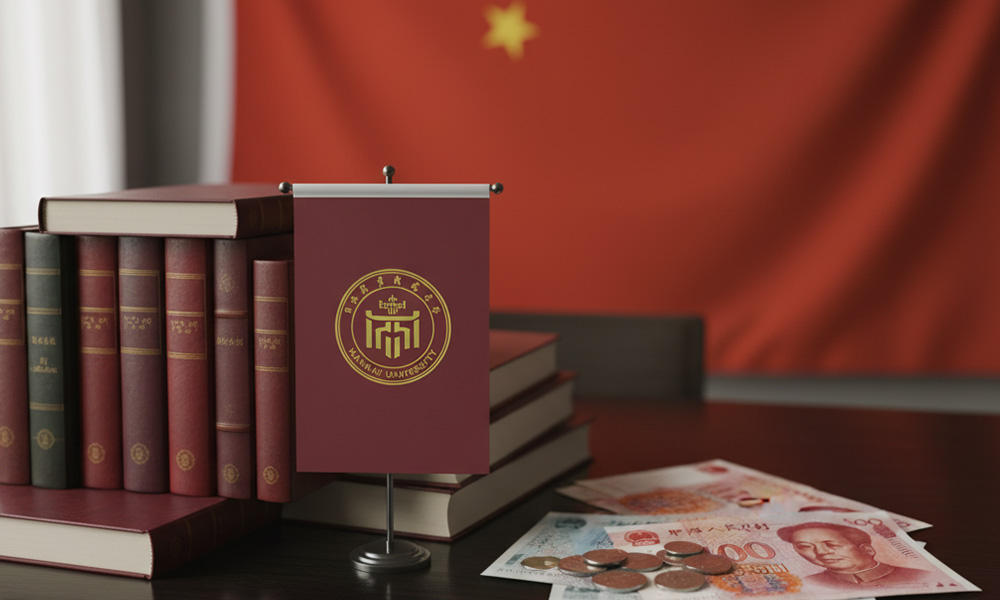
Cost of Study in China
One of the most compelling arguments of learning at Tianjin Nankai University is affordability, especially in comparison with counterparts in the UK, US, or Australia.
1. Tuition Fees
Nankai University of China international student fees are structured openly. Undergraduate programs in humanities and social sciences are 20,000 RMB a year, while science and engineering programs are 25,000 RMB a year. Medical programs go up to 30,000 RMB. These are school charges only and are payable semester wise.
Fees to graduate are such that: Master’s in most fields is 25,000-30,000 RMB/year, PhD 30,000-35,000 RMB/year. Nankai-University of Glasgow double-degree master’s programs require 50,000 RMB/year, foreign faculty involvement plus the double-degree premium. Chinese language non-degree programs require 15,000-18,000 RMB per semester, with materials included.
2. Accommodation Fees
Aside from tuition, the broader expense of study in China at Nankai is accommodation, food, transport, and miscellaneous fees.
First-year internationals must live in on-campus dorms and are highly recommended to do so afterward for convenience and friendship. Options are single occupancy at 10,000 RMB/year or shared doubles/triples at 4,000-6,000 RMB/year per person. Facilities include air conditioning, high-speed internet, communal kitchens, laundries, and weekly cleaning. Off-campus apartments in Tianjin are typically on average 2,500-4,000 RMB/month, but subsidized dorms in the university are safer for foreigners.
3. Daily Expenses
Food is affordable: Three meals a day are served at university cafeterias for 10-20 RMB each—healthy foods such as rice bowl, noodle, stir-fry, and halal/vegetarian dishes. A budget of 1,000-1,500 RMB a month covers food. Groceries from local markets or apps like Meituan are added convenience at comparable prices.
Tianjin’s transportation is convenient and cheap. IC card available on subway and bus costs 200-300 RMB/month for heavy use. Beijing overnight high-speed trains (70 RMB round-trip) facilitate weekend getaway trips. Bike or e-bike are ubiquitous on campus, sharing service at 1-2 RMB per ride.
4. Other expenses
Comprehensive health insurance is 800 RMB/year (mandatory). Textbooks and materials are 1,000-2,000 RMB/year. Travel, entertainment, and miscellaneous expenses might add another 500-1,000 RMB/month. So, a prudent student can survive on 2,000-3,000 RMB/month in living costs, totaling an annual estimate of 50,000-70,000 RMB including tuition for undergraduate students (about 7,000-10,000 USD).

5. Scholarships
Scholarships in China also go a long way in easing this burden. Chinese Government Scholarship (CSC) Type B, with which one applies using Nankai’s agency number 10055, covers full scholarship for fees, on-campus dormitory, monthly stipend (2,500 RMB for undergraduates, 3,000 RMB for master’s, 3,500 RMB for PhD), and insurance. Tianjin Municipal Government Scholarship is 20,000-40,000 RMB/year. Nankai University International Student Scholarship offers partial fees waiver or stipends based on merit. No separate application is needed for most; perfection in the admission application itself guarantees. Over 80% of international students receive some form of aid, full CSC awards being very competitive but within reach with good academics. 6. Visa Fees
Visa fees: X1/X2 application fee is approximately 400-800 RMB depending on nationality. Flight (variable) and first settlement (2,000 RMB for bedding, etc.) are costs incurred before departure. Nankai’s cost is 20-30% lower than Beijing or Shanghai’s mean due to Tianjin’s lower living cost index. Students report they can live well with budgets from 60,000 RMB/year total, leaving plenty of scope for cultural pursuits such as viewing the Tianjin Opera or enjoying the Yellow Sea coast.
Nankai University World Rankings
The Nankai University of Tianjin is ever one of the world’s and country’s top institutions, which explains its research output and teaching provision. In the QS World University Rankings 2026, the Nankai stands at =355 in the world, which shows improved academic reputation, employer reputation, and international faculty ratio. It ranks among the top 15 in mainland China.
1. World Rankings
The Times Higher Education (THE) World University Rankings places Nankai in the 401-500 band, with high citation per faculty and industry income scores. THE Impact Rankings, assessing UN Sustainable Development Goals, highlight Nankai’s excellence in quality education and clean energy.
The Academic Ranking of World Universities (ARWU, Shanghai Ranking) 2024 places Nankai 201-300 globally and six subjects within the top 100: Chemistry (51-75), Mathematics (76-100), Materials Science (101-150), Environmental Science (101-150), Statistics (101-150), and Economics (151-200). Nankai ranks as a Double First-Class university with first-class mathematics, chemistry, physics, biology, economics, and world history disciplines in the domestic rankings.
U.S. News & World Report Best Global Universities places Nankai 166 worldwide overall, leading in chemistry (#30 in the world), materials science, and nanoscience. The Nature Index tracks high-impact papers, placing Nankai in the top 20 in China in natural sciences. Subject rankings are QS Business & Management Studies at 301-350 and Computer Science at 201-250.
These rankings are a result of indicators like 1,000+ SCI papers annually, billions of research grants, and Nobel laureate collaborations. For students, it translates to world-class facilities and higher job prospects—graduates get placed in Fortune 500 companies, academia, and the government with a sought-after credential.

Benefits of Studying at Nankai University
The benefits of studying at Nankai University extend far beyond the lecture hall, including personal growth, professional growth, and cultural enrichment.
1. Quality Education
The first of these are interactions with world-renowned scholars and cutting-edge research equipment. Over 2,000 full-time instructors are Yangtze River Scholars, National Distinguished Experts, and international collaborators. They carry out research in 100+ key laboratories, such as the State Key Laboratory of Medicinal Chemical Biology or the Tianjin Key Laboratory of Artificial Intelligence.
2. Lively Campus Life
Campus life is active and open. Balitai Campus features lakes with willow-lined shores, sports grounds, and cultural centers that are the stage for festivals, concerts, and debates. Jinnan has modern libraries with 4 million+ volumes and 24/7 open study rooms. Over 100 student clubs cover academics, arts, sports, and volunteering—join the Model UN, robotics club, or traditional Chinese orchestra.
3. international Community
The international community thrives with in-situ visa assistance, counsel, and buddy programs pairing locals with residents. Festivals like International Culture Festival celebrate 95 nationalities of food, dance, and exhibitions. Language exchange pairs facilitate fluency naturally.
4. Unique Location
Tianjin location provides city perks minus Beijing’s ferocity. Being close to the Binhai Economic Zone equates to internships at technology giants Huawei and Tencent. High-speed rail has a 5-hour flight to Shanghai. Cultural landmarks—the Porcelain House, Italian Style Street—liven weekends.
5. Cost Effectiveness and Scholarships
Affordability and scholarships make study the focus rather than expense. Career services include job fairs with 500+ employers, resume workshops, and alumni mentorship. The network extends into diplomacy (multiple ambassadors), finance (Wall Street analysts), and tech (AI leaders). Zhou Enlai’s principles inculcate public service; most graduates work for NGOs or policy think tanks. According to Maria, an international student from Kenya, Nankai’s scholarship application is easy and accessible for international students.

6. Personal Development
Personal development is most valued. The “all-round capability” philosophy favors sports (national champion track team at Nankai), arts, and leadership. Global capability is fostered by study abroad through 340 partners. Programs in English and double degrees such as Nankai-Glasgow receive international certifications without extra costs.
Sustainability initiatives—green campus, solar research—align with global priorities. Health care, fitness rooms, psychological counseling ensure well-being. Alumni indicate mind-set changes: from passive learning to creative problem-solving.
In fact, Nankai equips students with knowledge, skills, networks, and values to achieve sustained success in a multipolar world.
Conclusion
Tianjin’s Nankai University offers an unbeatable blend of intellectual challenge, value for money, and global recognition. With simple Nankai University of China admission requirements, affordable Nankai University of China tuition fees, and best world rankings, it is a gateway to excellence in one of the liveliest cities in China. From groundbreaking research to vibrant campus life and powerful alumni networks, Nankai provides students not only with knowledge, but vision and opportunity. To those ready to meet challenge and growth, Nankai is not just a university—it’s the beginning of an extraordinary journey. Get in touch and apply today and start your future. Contact us for additional information.
FAQS:
1. What are the most significant admission requirements for international students at Tianjin Nankai University?
They must bring a valid bachelor’s degree (for master’s/doctoral) or high school diploma (for undergraduate), HSK 4–6 or IELTS 6.0+/TOEFL 80+ for English-medium programs, Chinese-medium programs or for Chinese-medium programs or English-medium programs, two letters of recommendation, personal statement, and physical examination report. Submit online at nankai.17gz.org by May 20 (undergraduate) or rolling deadlines (graduate).
2. Nankai University of China fee for international students how much?
Undergraduate programs are 20,000–25,000 RMB/year (~$2,800–$3,500 USD). Master’s and PhD are 25,000–50,000 RMB/year, including double-degree programs like Nankai-Glasgow at 50,000 RMB. Application fee: 400 RMB (undergraduate) or 600 RMB (graduate).
3. What scholarships are available to reduce the study expense in China at Nankai?
The Chinese Government Scholarship offers full scholarships in the form of tuition, accommodation, monthly stipend (2,500–3,500 RMB), and insurance. Tianjin Government and Nankai University Scholarships offer partial or full scholarships. Most require one application through the university portal; over 80% of international students are assisted.

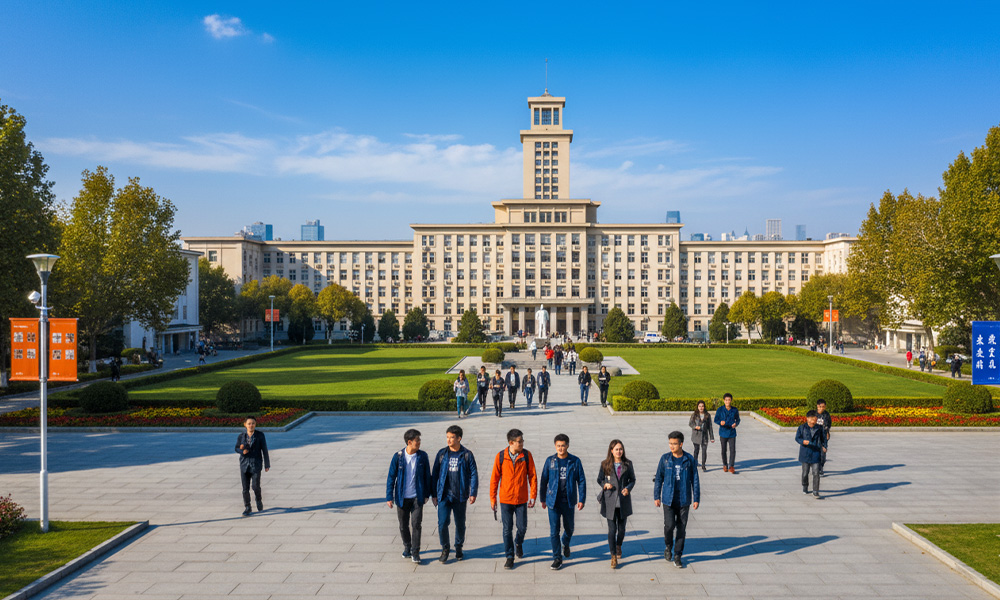
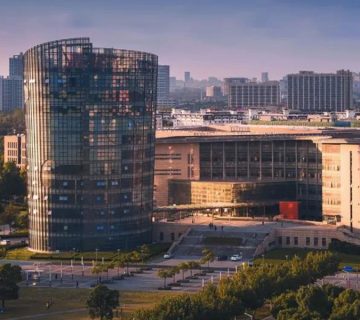
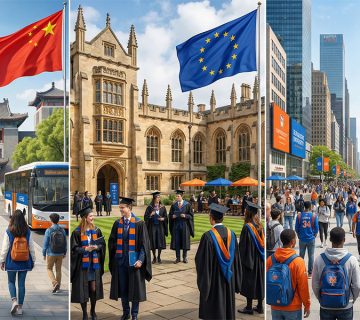
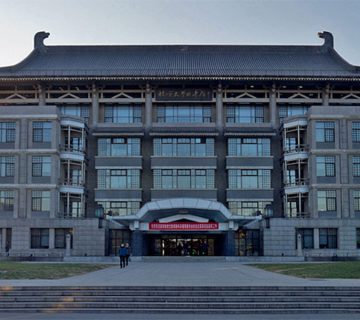
No comment